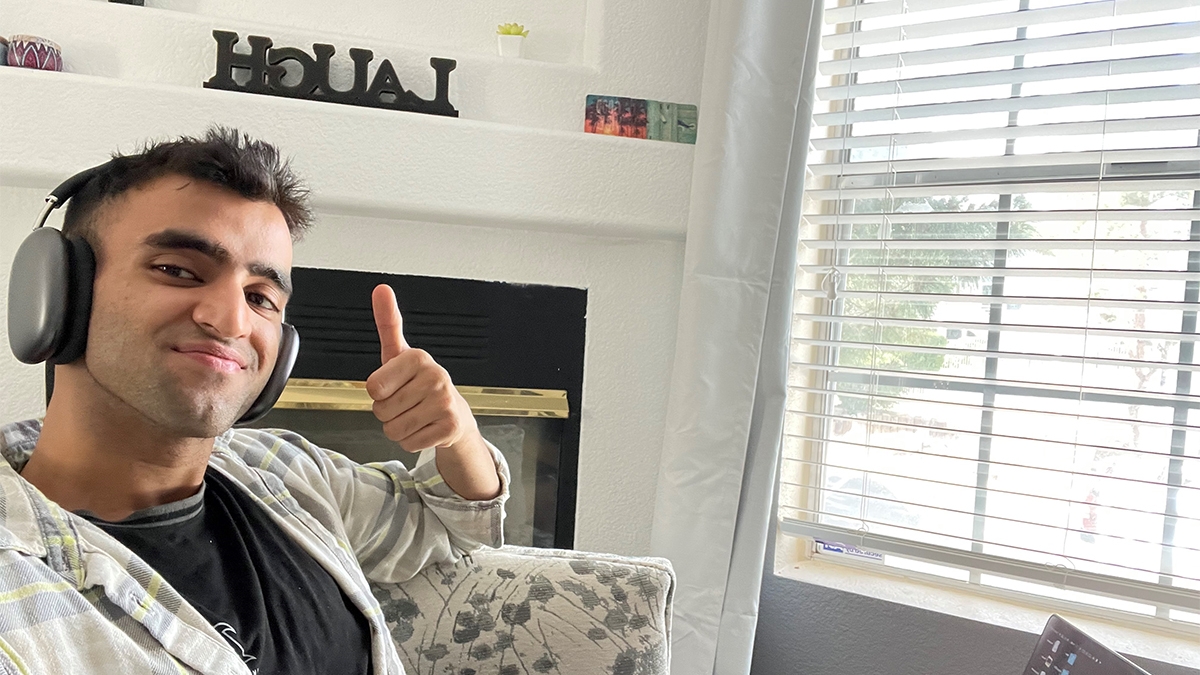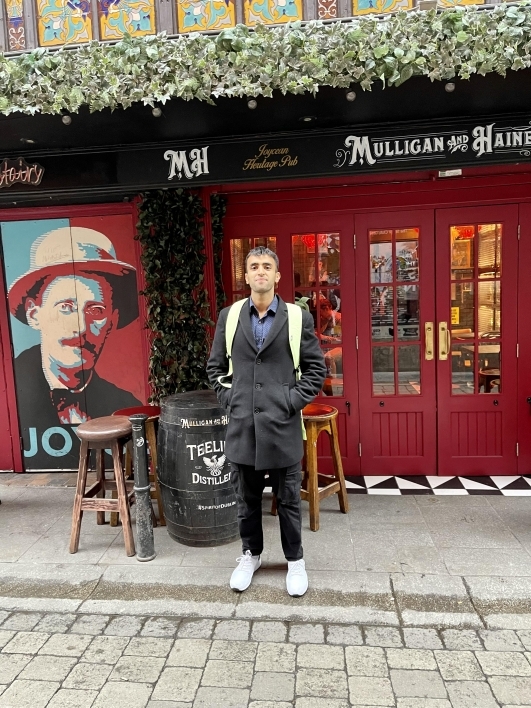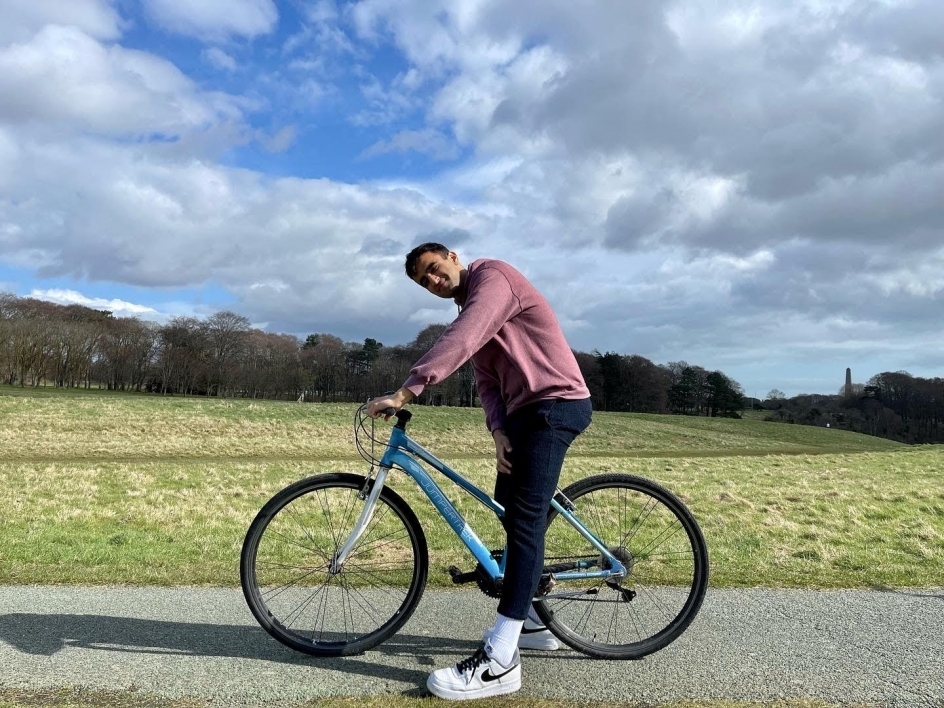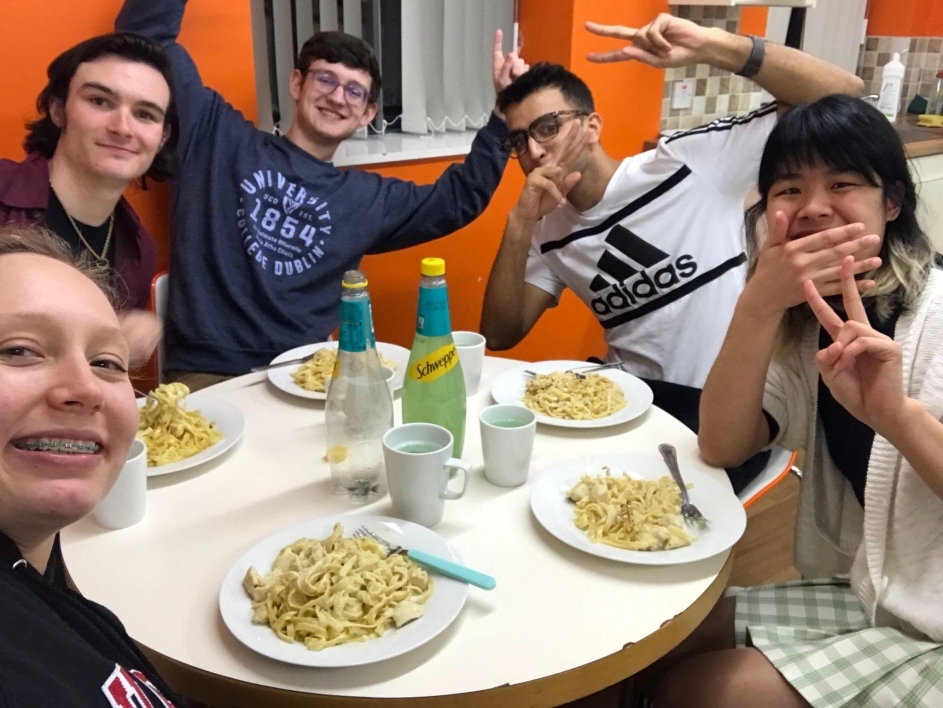ASU graduate lives lessons of leadership, community on path to medical school

Aman Garg is graduating with a degree in biochemistry from the School of Molecular Sciences.
Editor’s note: This story is part of a series of profiles of notable spring 2023 graduates.
Working as a certified nursing assistant in a hospital and witnessing the compassionate staff there inspired Aman Garg to pursue a career in medicine. This spring, he is graduating with a degree in biochemistry from the School of Molecular Sciences at Arizona State University with plans to apply to medical school.
He also has been active on the school's social media, interviewing students and professors and to share their stories.
Garg shares about his academic journey below.
Question: What’s something you learned while at ASU — in the classroom or otherwise — that surprised you or changed your perspective?
Answer: At ASU I learned that collaboration and working with others is really important. When I joined ASU, it was an important change from high school where I thought I could do everything myself and on my own. I realized that although I could do a lot on my own, working with others is something that just cannot be matched. Growing a network of friends and community is so important for one’s work but also for one’s own health, and in this regard, I think ASU really took me under its wing. It showed me how better off I could be when I interacted and worked with others. ASU really surprised me in this aspect because I thought very differently before I enrolled. Thanks to this perspective shift, I have a lot of friends and a community I can fall back on and can serve at the same time.
Q: Which professor taught you the most important lesson while at ASU?
A: After taking her class and interviewing Professor Smitha Pillai, I learned how to lead by example. Pillai always was very kind to her students. In the beginning of her organic chemistry class, she announced to all students that if they wanted to score well in her class, they should reach out to her early and that she would help them succeed. Later, when I interviewed Pillai for the school, she talked about her own struggles and how she did not even plan to pursue organic chemistry. The fact that she initially was not even inclined to have a career as an organic chemistry professor and now is the best instructor I have had at ASU just told me that you really can do anything as long as you put the work in towards it. In her class, Pillai reached out to her students to make sure they (and I) were practicing their organic chemistry problems, and that’s what helped me be successful in a course I thought I would struggle in. Pillai taught me to embrace this mentality of effort and leadership, and it was probably the most important lesson I learned at ASU.
Q: What was your “aha” moment when you realized you wanted to study the field you majored in?
I came to my major from a very non-traditional path. After high school, I was not 100% sure what I wanted to do. I gave myself the opportunity to try a lot of different classes and extracurriculars throughout my college career to come to my present biochemistry major.
I think my “aha” moment was when I worked at a hospital as a CNA (certified nursing assistant) for a few months and met all the compassionate staff and doctors I worked with. The hospital, and working with nurses and other clinical staff, felt like home. The fact that I, if I become a doctor, can get up and help others deal with, diagnose and treat their illnesses really attracted me. I believe, after seeing it firsthand, it’s a way of living I’d enjoy and thrive in mostly because of the type of people I’ll work with and work for. As a result of that experience, I decided I wanted to be a biochemistry major started to work on my prerequisites for medical school through the major.
Q: What’s the best piece of advice you would give to students?
A: Make a lot of friends. Talk to a lot of people. Never shy away from anything that seems intimidating. Try to do as much as you can by remaining true to your passion and your family. Call your mom more.
Q: What are your plans after graduation?
A: I want to work in a clinical position, grow my premed/med school social media page, and apply to medical school!
More Science and technology

Applied Materials invests in ASU to advance technology for a brighter future
For nearly 60 years, global giant Applied Materials has been hard at work engineering technology that continues to change how…

Meet ASU engineering students who are improving health care, computing and more
Furthering knowledge of water resource management, increasing the efficiency of manufacturing point-of-care health diagnostic…

Turning up the light: Plants, semiconductors and fuel production
What can plants and semiconductors teach us about fuel production?ASU's Gary Moore hopes to find out.With the aim of learning how…




